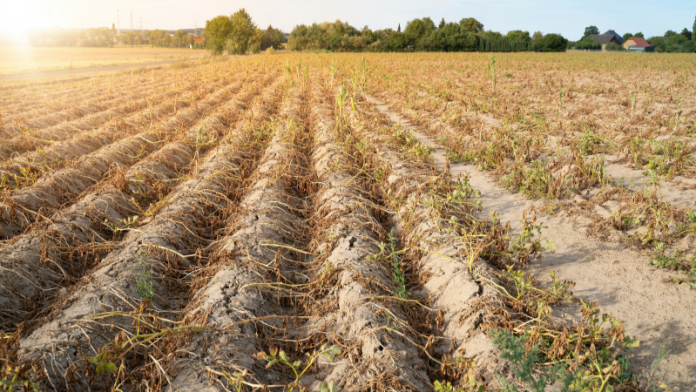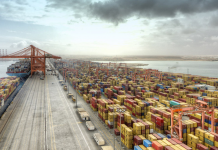Soaring temperatures in Europe have impacted agricultural production and look set to have a knock-on effect on food costs. As warmer weather becomes the norm, will ‘heatflation’ become a regular occurrence?
Heatwaves in Europe in the past week have seen exceptionally hot weather wreaking havoc across the continent. In France, Greece, Spain and Portugal, temperatures above 40-degree-Celsius sparked wildfires that forced tens of thousands to evacuate from their homes.
In the UK, a record high of 40.3-degree-Celsius brought on travel chaos and fears of a health emergency.
Even when the heat has not caused obvious damage, the impact of such extreme weather can have a lasting effect, especially on food production. The result is likely to be ‘heatflation’ – unusually hot temperatures causing smaller harvests and rising food prices.
In Italy, for example, the mid-July heatwave was one in a series that has hit the country this summer. As a consequence, the agriculture union, Coldiretti, has warned that drought is threatening 30-40 per cent of the national seasonal harvest.
Throughout Europe, July’s heatwave hit at during a crucial pollination window for maize crops, threatening to reduce overall harvests and increase import needs. At the same time, experts forecast a decline in milk production that could last for weeks due to overheated livestock.
The impact of heatflation could be felt over the coming months. For grain crops such as wheat, rice and maize, prices on commodity markets are set in advance, based on forecasts of how successful a harvest will be.
“Any expectation that there’s going to be a shortage, however small or big, normally manifests itself in four to six months,” says Dominic Moran, a professor of agricultural and resource economics at the University of Edinburgh.
As harvest season has already started for much produce, the July heatwave did not damage as many crops as it could have. But in the current economic context, the impact of heatflation could still hit hard.
“We are in a food, energy and cost-of-living crisis, created by COVID-19,” says Professor Tim Benton, Director of the Environment and Society Programme at international affairs think tank Chatham House. “In a disrupted market – where demand globally is exceeding supply – any loss of harvest does not help prices,” France 24 News reported.
*This story was originally published in Oman News Agency






